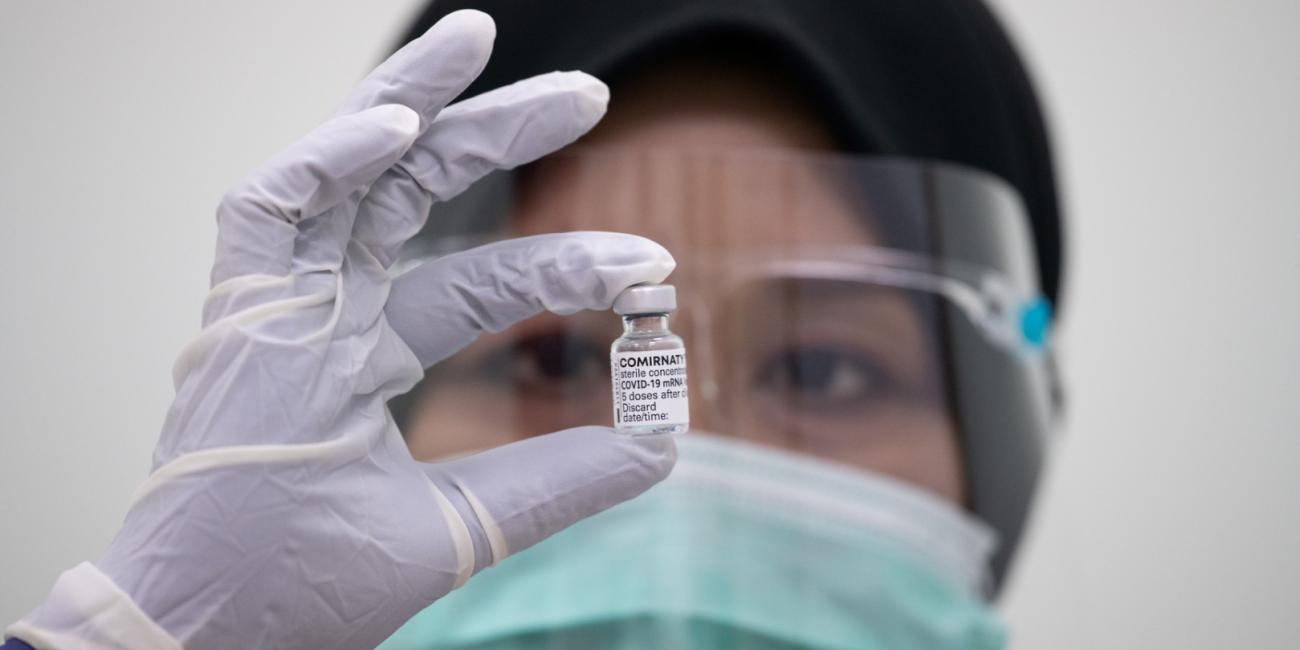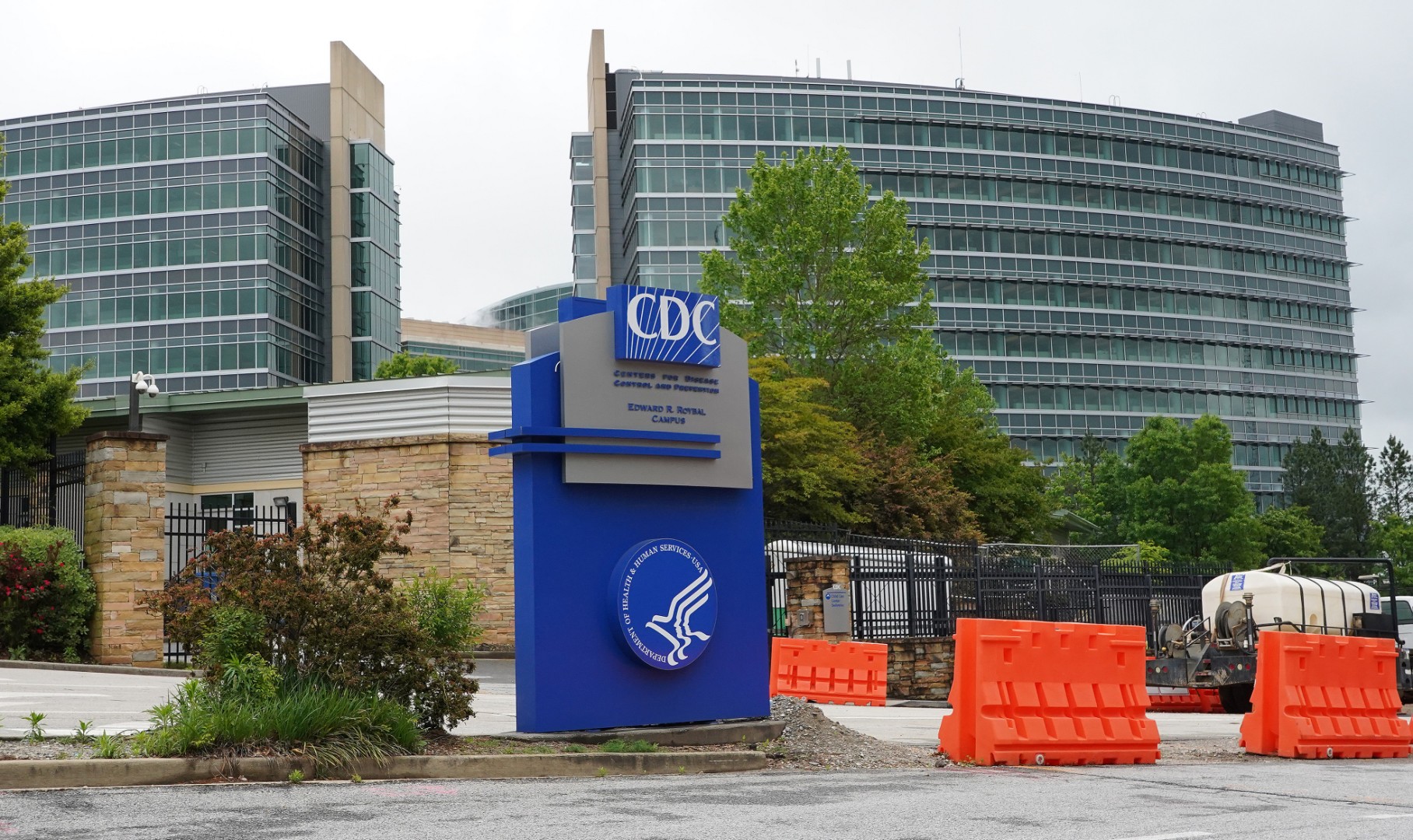
CDC edits website to include false claims about vaccines and autism
- Published on November 20, 2025 at 23:50
- 4 min read
- By Maggy DONALDSON, Charlotte CAUSIT, Marisha GOLDHAMER, AFP USA
The US health agency has updated its official website to reflect the vaccine skepticism of a senior Trump official, a move that medical and public health experts widely condemned.
The Centers for Disease Control and Prevention (CDC) late on November 19, 2025 revised its site with language that undermines its previous, scientifically grounded position that immunizations do not cause the developmental disability autism.
Years of research demonstrate that there is no causal link between vaccinations and autism or other neurodevelopmental disorders (archived here).
But Robert F. Kennedy Jr, the nation's health chief, has long voiced anti-vaccine rhetoric and inaccurate claims connecting the two.
The CDC webpage on vaccines and autism had previously stated that studies show "no link between receiving vaccines and developing autism spectrum disorder," citing a body of high-quality research including a 2013 study from the agency itself (archived here).
That text reflects medical and scientific consensus, including guidance from the World Health Organization (archived here).
But the changes rebuke it. The website now asserts that "the claim 'vaccines do not cause autism' is not an evidence-based claim because studies have not ruled out the possibility that infant vaccines cause autism."
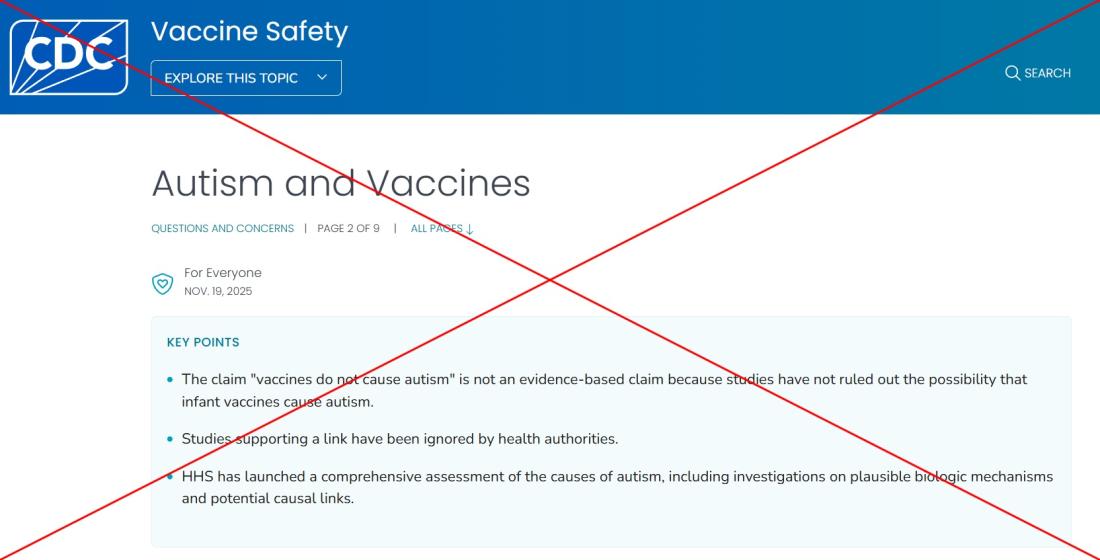
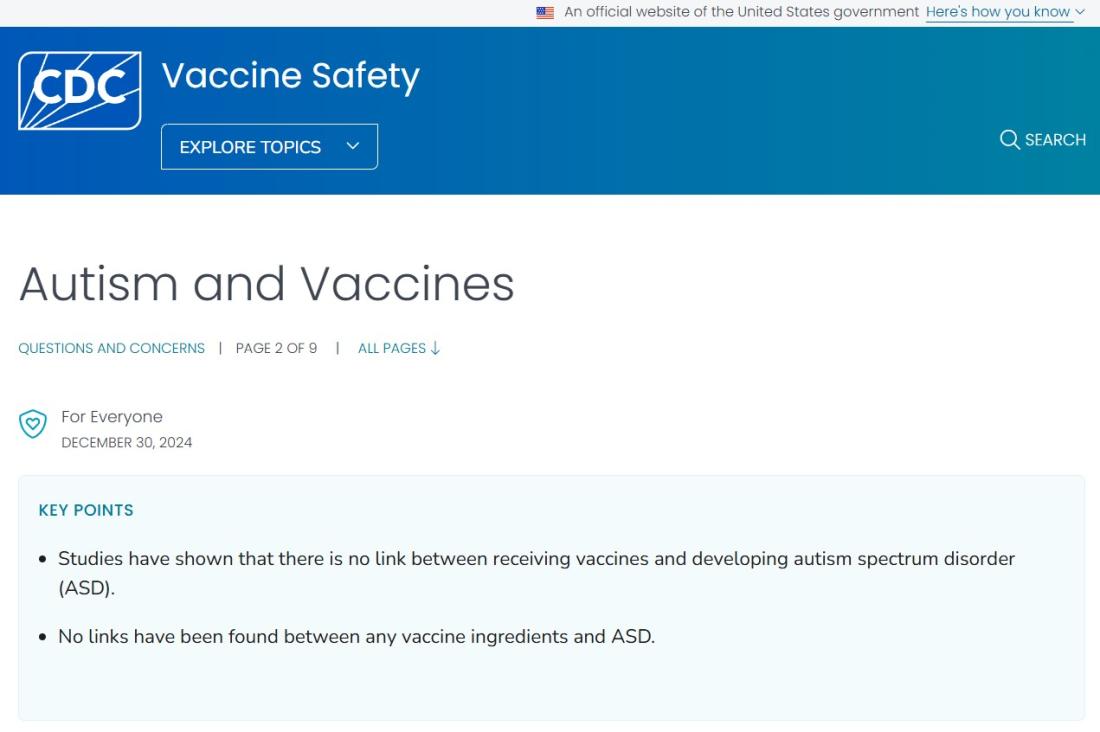
David Mandell, director of the Penn Center for Mental Health at the University of Pennsylvania School of Medicine, called the wording "bizarre" (archived here).
"As any scientist knows, you can't 'prove' the lack of association. You conduct related studies, over and over, until the bulk of evidence finds no association," he said in comments sent to AFP by the Coalition of Autism Scientists on November 20.
"The CDC language reminds me of RFK Jr saying, 'We're going to conduct the studies to find the proof,'" Mandell said. "That's how a lawyer acts. It's not how a responsible scientist acts."
Several groups and individuals AFP has previously fact-checked for spreading vaccine misinformation celebrated the change, including Children's Health Defense, the nonprofit formerly chaired by Kennedy. The organization's CEO Mary Holland specifically lauded Kennedy, saying on X: "Thank you, Bobby."
Experts push back
The CDC website edits were met with anger, fear and concern by scientists and public health figures who have spent years combatting such false information.
Demetre Daskalakis -- the former director of the agency's arm focused on immunization and respiratory diseases, who resigned earlier this year in protest -- was unequivocal in a November 19 X post (archived here): "DO NOT TRUST THIS AGENCY."
Susan Kressly, president of American Academy of Pediatrics, said in a November 20 statement: "We call on the CDC to stop wasting government resources to amplify false claims that sow doubt in one of the best tools we have to keep children healthy and thriving: routine immunizations" (archived here).
Noting independent studies from multiple countries involving millions of patients, she said: "The conclusion is clear and unambiguous: There's no link between vaccines and autism."
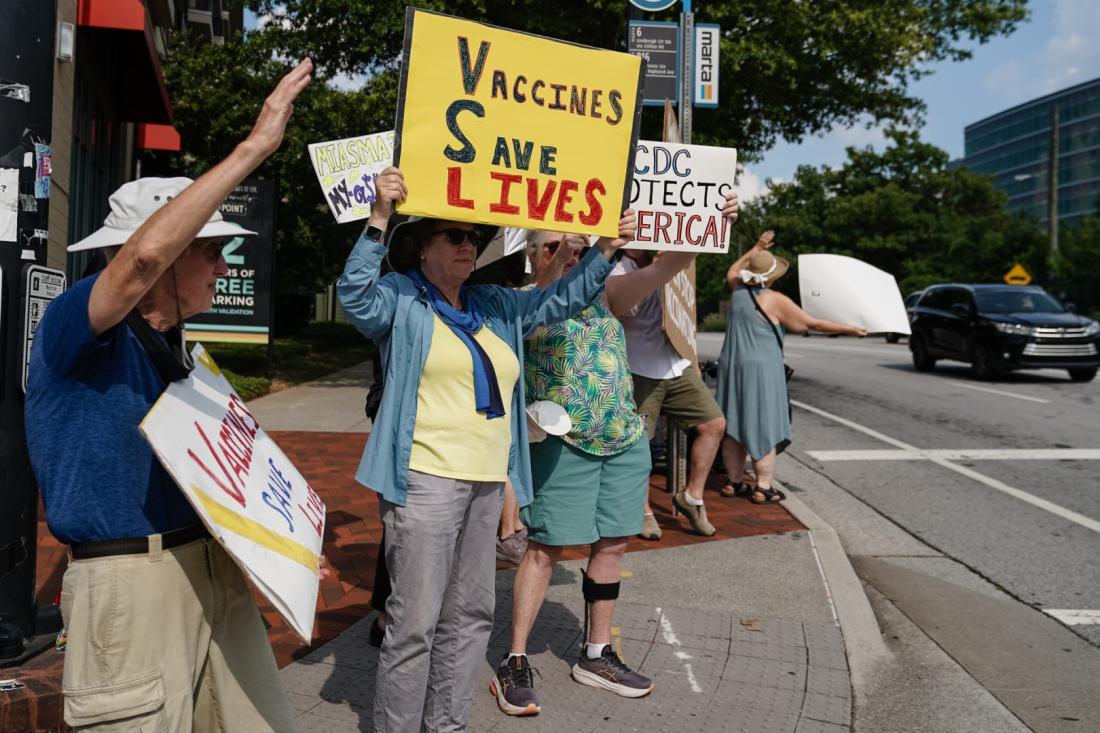
Helen Tager-Flusberg, director of the Center for Autism Research Excellence, told AFP (archived here): "I feel like we are undermining science by tying it to people's political agendas."
She warned November 20 that the change "will sow confusion and fear and ultimately lead to more serious illnesses and deaths among vulnerable children."
Vaccine ingredients
Archived versions of the CDC website show the agency removed a section stating: "Vaccine ingredients do not cause autism."
The site specifically discussed thimerosal, a mercury-based preservative used in multi-dose vials of vaccines. Although the substance is now rarely used in US vaccines, the US health department said it would end its use entirely in July 2025 (archived here).
Elsewhere on the CDC's website, the agency still states that "research does not show any link between thimerosal in vaccines and autism" (archived here). That page, last updated October 28, points to three "well conducted studies" as evidence (archived here, here and here).
The website's new language under Kennedy says the health department plans to evaluate "the impacts of aluminum adjuvants" in vaccines.
Experts previously told AFP that aluminum is used to boost immune response to vaccination, and that the amount contained in a dose is not a risk, equaling less than what is ingested by infants via breastmilk or formula.
MMR vaccine
The CDC also edited a section on its website referencing the MMR vaccine.
The effort to link autism to infant vaccination largely traces to a flawed study published in 1998 about the measles, mumps and rubella (MMR) combination vaccine. The Lancet, which had published the paper, later retracted it for including falsified data (archived here and here).
The study's results have not been replicated -- and have been countered by subsequent research.
The CDC website retained one header: "Vaccines do not cause Autism."
But that line was not cut in an attempt to keep an agreement Kennedy had made with the Republican lawmaker Bill Cassidy, a medical doctor who chairs the Senate committee focused on health (archived here).
Cassidy responded to the changes on X November 20, saying (archived here): "What parents need to hear right now is vaccines for measles, polio, hepatitis B and other childhood diseases are safe and effective and will not cause autism. Any statement to the contrary is wrong, irresponsible, and actively makes Americans sicker."
The University of Pennsylvania's Mandell previously told AFP a large body of evidence points to genetic causes for autism, not vaccination.
"We have looked at whether children got vaccinated," he said. "We have looked at when they got vaccinated. We have looked at which combinations of vaccines they've gotten. And in all those studies that were well done, we see no association between vaccines and autism."
Find all of AFP's reporting on vaccine misinformation here.
Copyright © AFP 2017-2026. Any commercial use of this content requires a subscription. Click here to find out more.
Is there content that you would like AFP to fact-check? Get in touch.
Contact us
